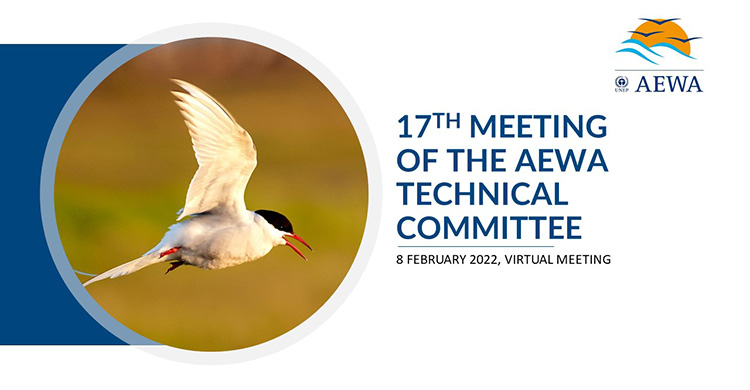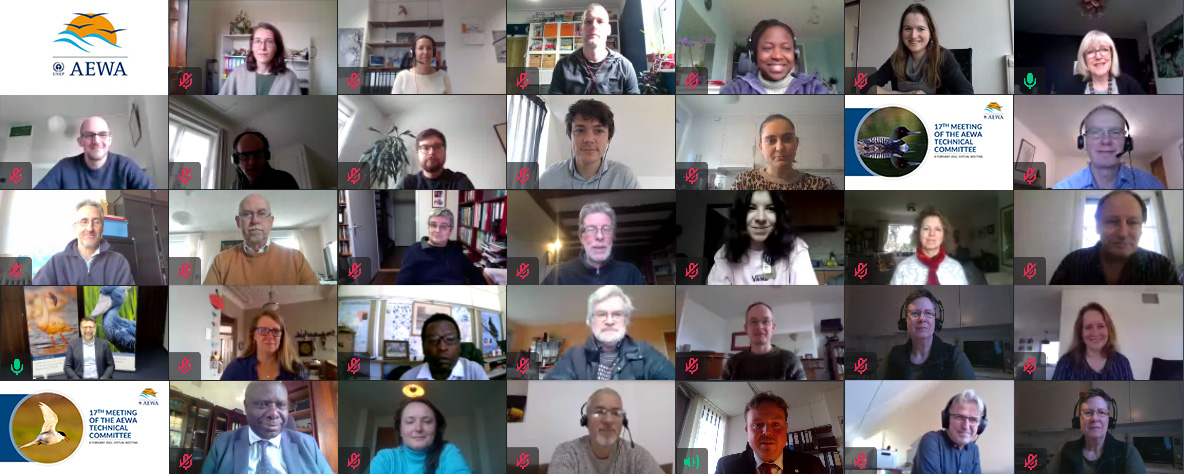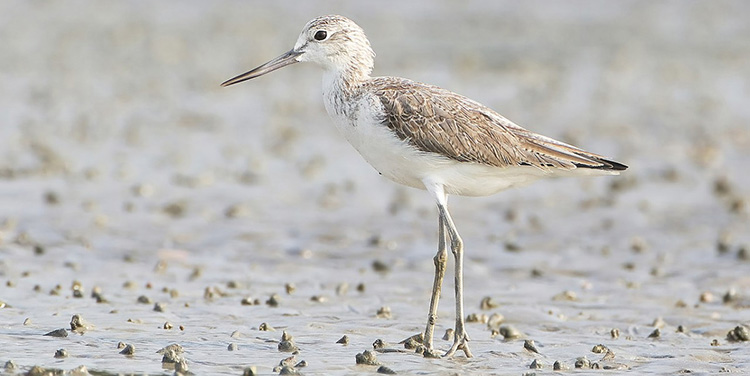17th AEWA Technical Committee Meeting Successfully Held Online

Bonn, 11 February 2022 – The 17th Meeting of the AEWA Technical Committee (TC17) was held virtually on 8 February, bringing together experts from a wide spectrum of fields as well as 14 Party Observers and several key partner organisations of the Agreement.
This was the final meeting of the AEWA Technical Committee ahead of the 8th Session of the Meeting of the Parties to AEWA, which was postponed due to the pandemic and is now scheduled to take place 26 – 30 September 2022 in Budapest, Hungary.
The primary focus of AEWA TC17, was to assess the status of implementation of the Technical Committee’s Work Plan for the period 2019-2021 and to consider the possibility of benefitting from the extra time provided by the new MOP8 dates to undertake further work. The Committee reviewed the status of outstanding tasks and agreed on which are feasible for delivering in advance of MOP8 and which ones can be advanced before the next triennium. Later in 2022 the report of the Technical Committee to MOP8 will be revised based on the progress made according to the decisions of TC17 and the draft work plan for 2023-2025 will be reviewed accordingly.
In his opening remarks, Jacques Trouvilliez, Executive Secretary of AEWA said: “I would like to sincerely thank all members of the AEWA Technical Committee for their hard work and continued dedication to the Agreement. You are at the core of the Agreement whose implementation is based on the best science available and have achieved so much despite the difficulties we have all been facing due to the pandemic. In addition, I would also like to thank those countries which have provided the funding which has allowed the Secretariat to commission the assignments in support of some of the key tasks found in the Committee’s very ambitious work plan.”
The Technical Committee meeting was chaired by Dr. Ruth Cromie from the United Kingdom (representing the North and South-west European region), who began the meeting by commemorating Zoltán Czirák, who was a member of the AEWA Standing Committee and AEWA’s National Focal Point from Hungary, Nick Williams who was the former Coordinator of the CMS Raptors MoU and Evgeny Syroechkovskiy who was Chief Executive of Birds Russia and a leading champion for international bird conservation from Russia.
“Conservation is about having the right people in the right places and we have unfortunately lost three very committed, passionate and dedicated members of our community since our last AEWA Technical Committee meeting,” said Ruth Cromie.
The 17th Technical Committee meeting was the last meeting to be chaired by Ms Cromie as well as for several other regional representatives and thematic experts, including Ms Lizanne Roxburgh (Southern Africa), Mr Imad Cherkaoui (Northern Africa), Mr Pierre Defos du Rau (game management expert), Mr Philippe Karpe (rural economics expert) and Ms Olesya Petrovych (CEPA expert).
TC17 meeting documents are available here.
About the Technical Committee
The Technical Committee is the AEWA body that provides scientific and technical advice and information to the Meeting of the Parties and, through the Agreement Secretariat, to Parties. Its membership comprises one expert from each of the nine regions of the Agreement Area; one representative each from the International Union for Conservation of Nature (IUCN), Wetlands International, and the International Council for Game and Wildlife Conservation (CIC); and one thematic expert each on the topics of rural economics; game management and environmental law. In accordance with AEWA Resolution 5.5, the Technical Committee now also includes a thematic expert on Communication, Education and Public Awareness (CEPA), which is a special position filled by invitation from the chair. The Technical Committee further benefits from the expertise of several invited experts on specific topics currently on its workplan as well as permanent observers from a few partner organisations.
Last updated on 12 February 2022




